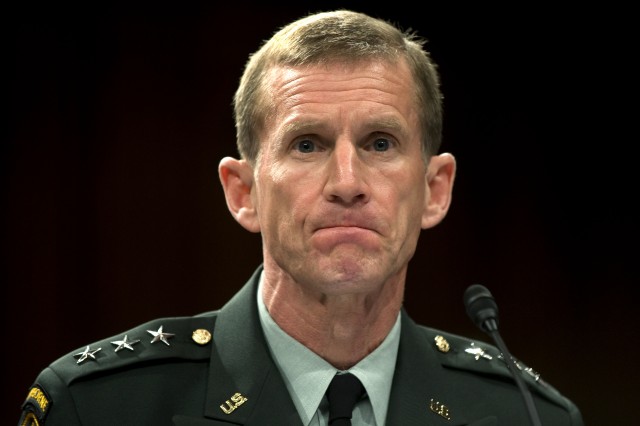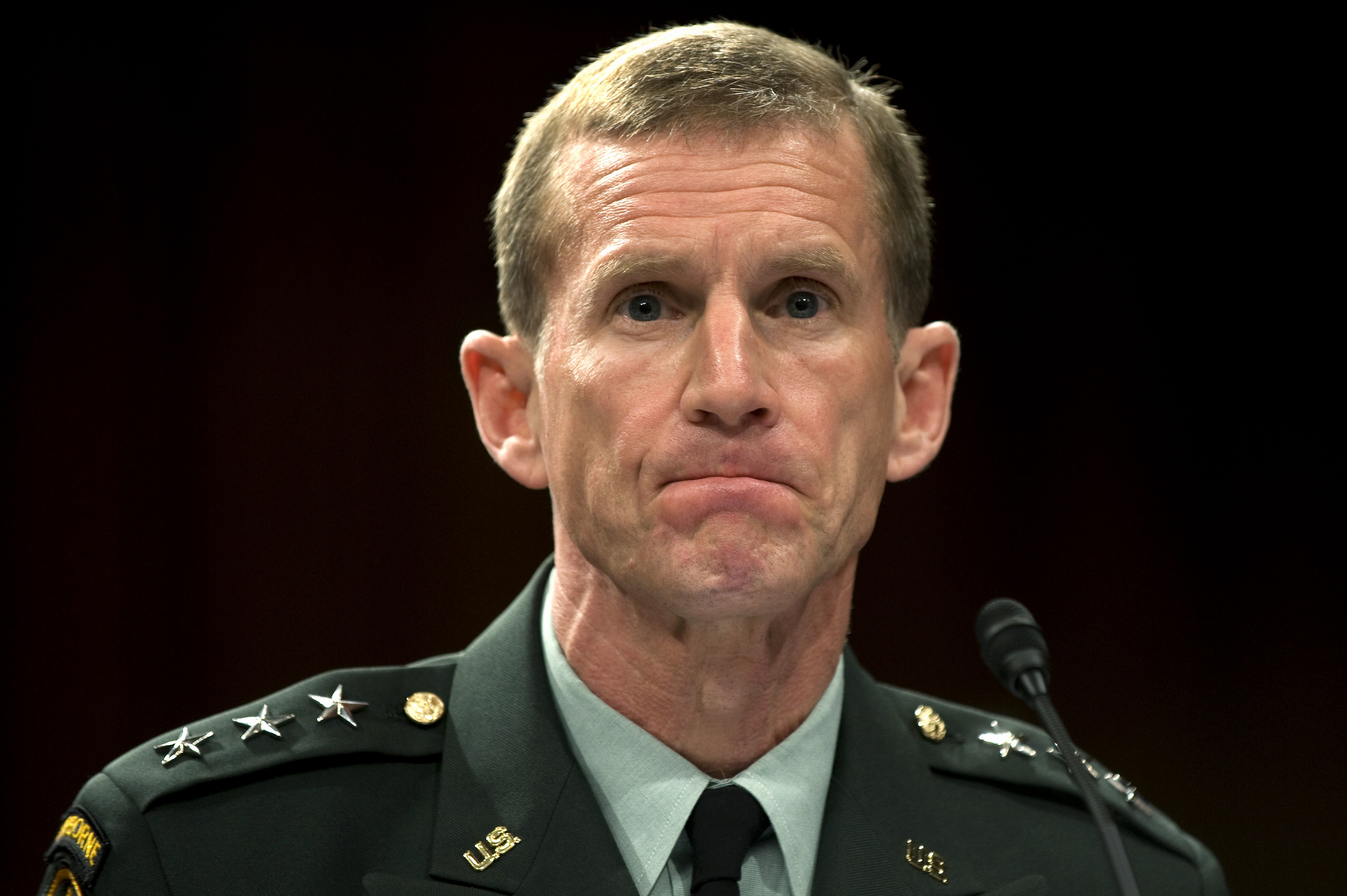WASHINGTON (June 2, 2009) -- Despite impressive progress in many areas, the situation in Afghanistan remains serious, the nominee to become the next commander of both the International Security Assistance Force and U.S. Forces Afghanistan said during his Senate confirmation testimony today.
"Afghans face a combination of challenges - a resilient Taliban insurgency, increasing levels of violence, [a] lack of governance capability, persistent corruption, lack of development in key areas, illicit narcotics and malign influences from other countries," said Lt. Gen. Stanley McChrystal. "There is no simple answer. We must conduct a holistic counterinsurgency campaign and we must do it well."
A key component to a holistic campaign is people, McChrystal said. More than 21,000 additional U.S. military personnel will deploy to Afghanistan by October. McChrystal admitted he didn't know if that would be enough and might not for some time.
"What I do know is a military-centric strategy will not succeed," he said.
As part of a broader approach, the State Department and other federal agencies are preparing to train and deploy additional civilian personnel with vital governance and development expertise, the general said said. In fact, there is ongoing development of an integrated civil-military plan with Karl Eikenberry, U.S. ambassador to Afghanistan, and his team to unite efforts across security, governance and development, he said.
Counterinsurgency is difficult and demands resources, courage and commitment over time, as each step of the "shape, clear, hold, build, process presents challenges," McChrystal said.
"We face serious challenges, but the insurgents who threaten the Afghan people offer no vision for a better future, and thus remain vulnerable to a government in Afghanistan that can provide one.
"This must be Afghanistan's effort, with our committed support," he added.
Central to counterinsurgency is protecting the people, and how the United States conducts operations is vital to success, McChrystal said.
"This is a critical point. It may be the critical point," he said. "This is a struggle for the support of the Afghan people.
"Our willingness to operate in ways that minimize casualties or damage, even when doing so makes our task more difficult, is essential to our credibility," he added.
While McChrystal said he anticipates a tough fight ahead, the measuring stick used to judge effectiveness will not be the number of enemy killed, but the number of Afghans shielded from violence.
That shielding is best done by the Afghans, he added. To that end, the development of both the Afghan National Army and national police is his highest priority.
"Presently, ISAF forces are conducting security and stability operations, providing senior leadership in all five regional commands, and are directly involved in the mentoring, training and equipping of the Afghan National Army," McChrystal said. "At this point, I also believe the Afghan national security forces will likely need to grow beyond the currently approved strengths to proved adequate security."
McChrystal, the current director of the Joint Staff, also touched on the topic of interrogation and the treatment of detainees. Considerable time and energy has been invested and improvement in this area has been continuous, he said.
"As this committee knows, since 9/11 our forces have learned valuable lessons regarding the treatment of detainees and made mistakes along the way," he said. "If confirmed, I will strictly enforce the highest standards of detainee treatment consistent with international and U.S. law."
The 1976 graduate of the U.S. Military Academy at West Point completed the Special Forces Officer Course in April 1979. He had several assignments before reporting to the Naval War College in June 1989. For the five years before he became the director of the Joint Staff in 2008, McChrystal served as the commanding general of Joint Special Operations Command.


Social Sharing